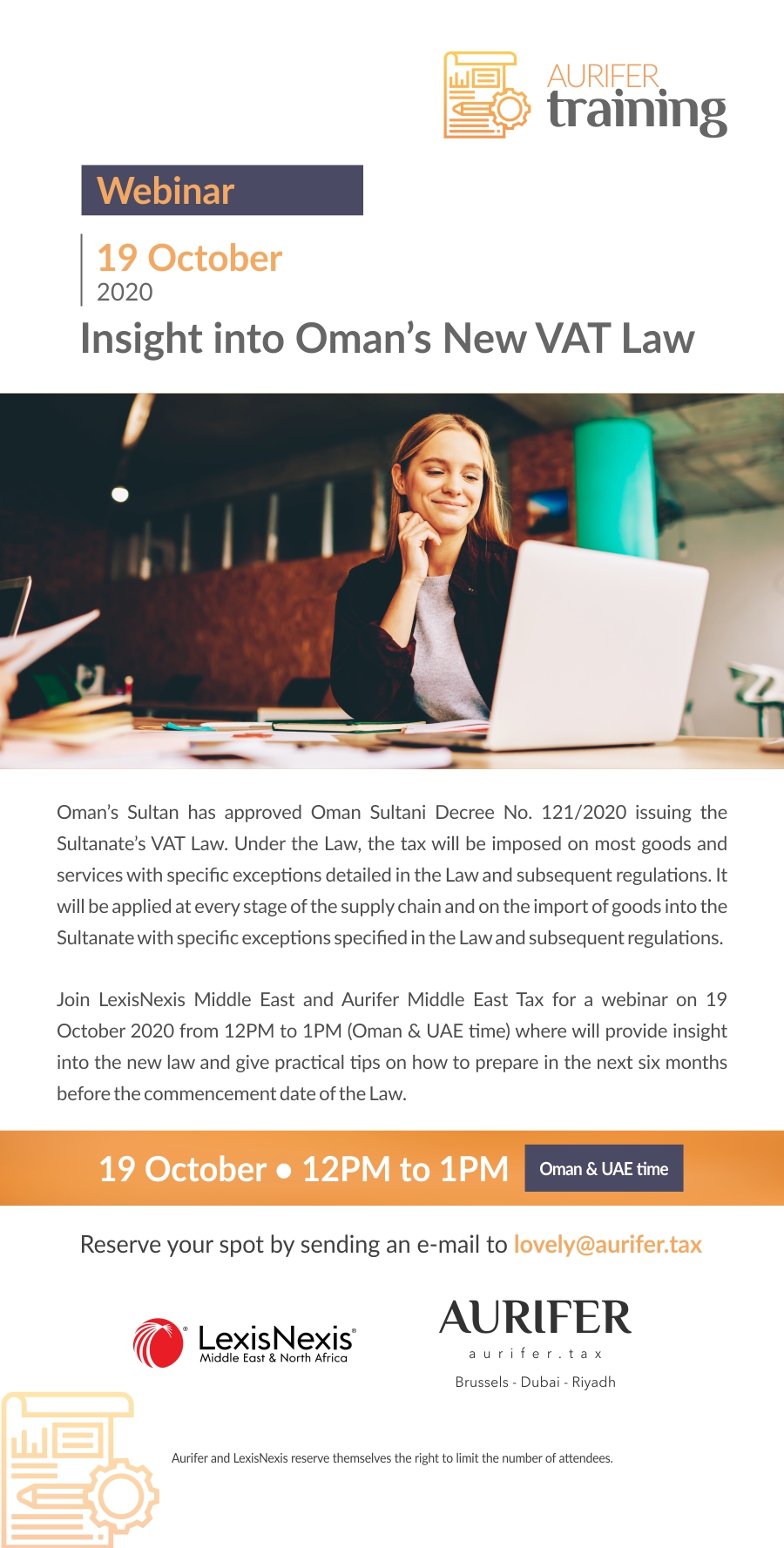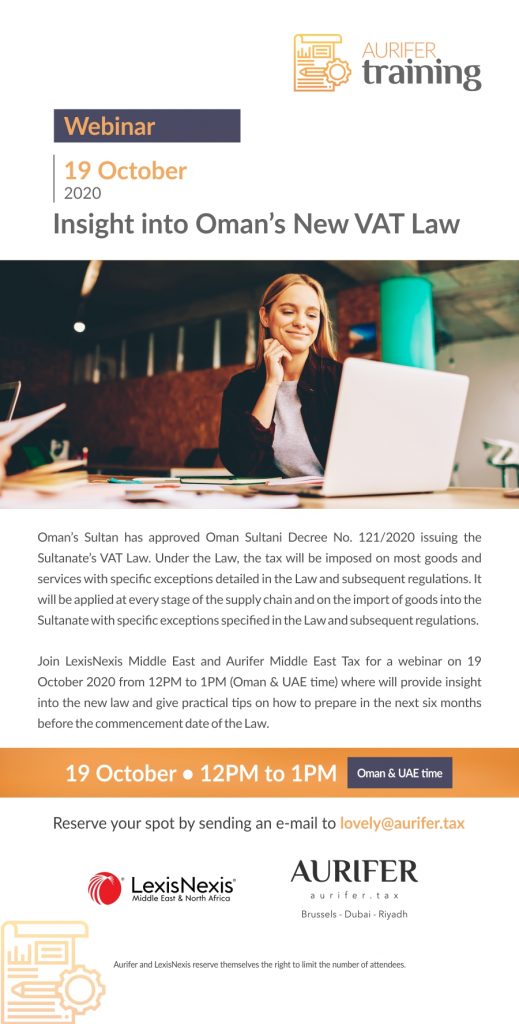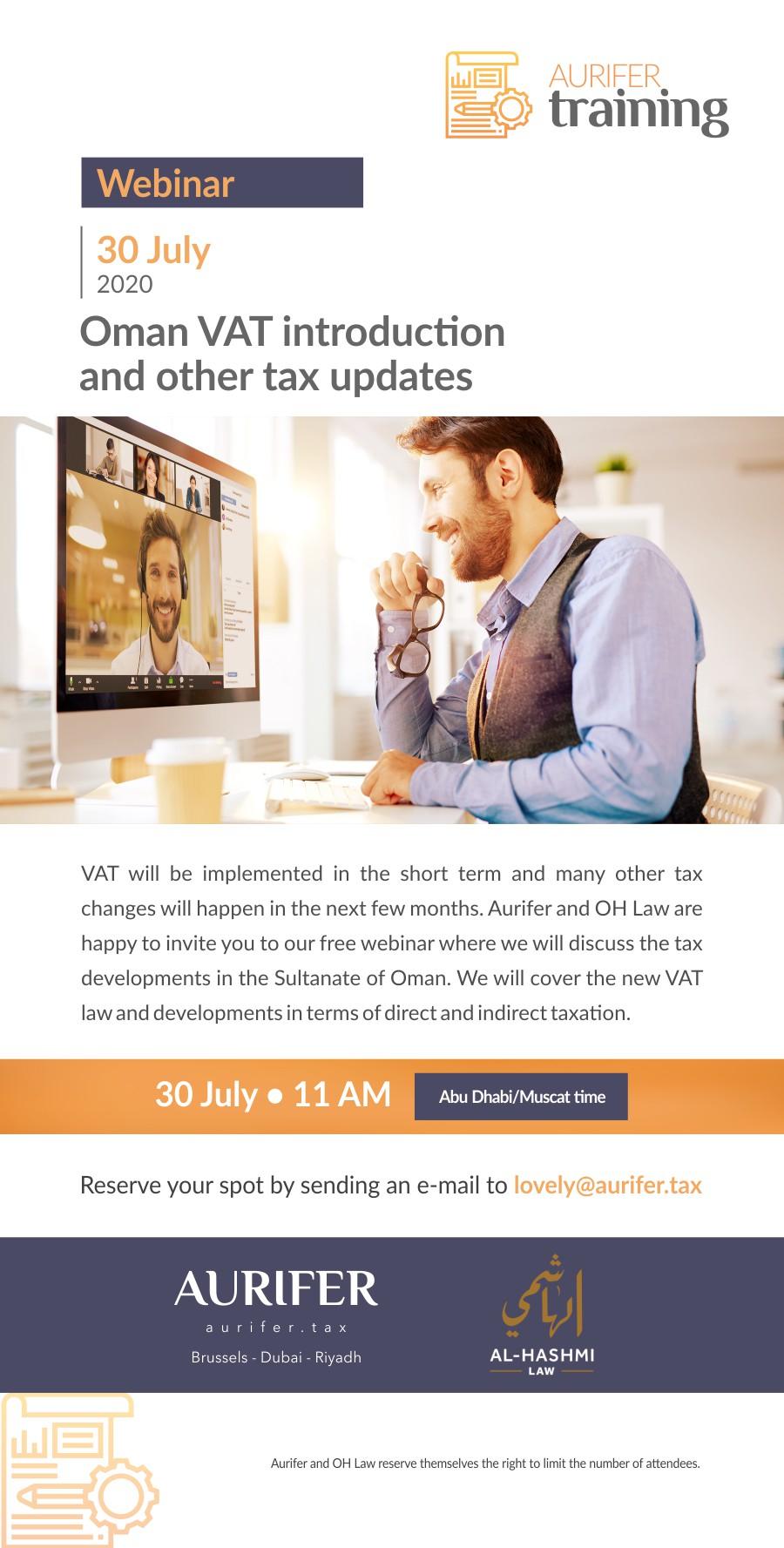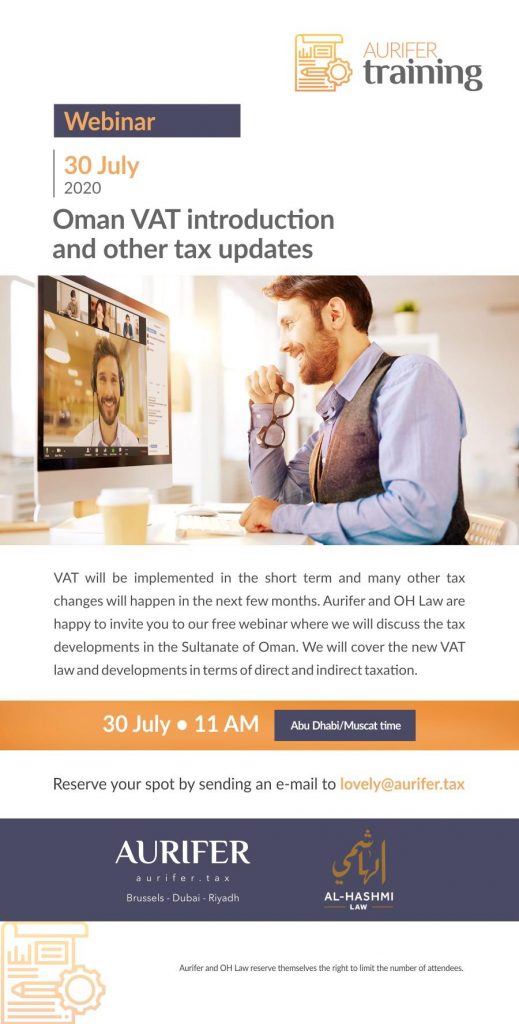

Qatar VAT FAQs
1. How is VAT or Sales Tax Defined in this jurisdiction?
It is expected that VAT law will be announced in Qatar during 2022. Together with the other GCC States, it has signed up to the GCC VAT Framework and has committed to implement the common VAT system through national VAT legislation in the near future.
Under the GCC VAT Framework, it is referred to as a ‘general tax on consumption in the GCC known as (VAT) levied on the import and supply of Goods and Services at each stage of production and distribution’.
2. What is the name of the main legislation covering VAT or sales tax?
VAT has not yet been implemented in Qatar under national legislation. However, the GCC VAT Framework sets out the general, high level, VAT rules under which the Qatar VAT system will operate once implemented.
3. What is the rate of VAT or Sales Tax in this jurisdiction?
VAT is calculated as a percentage of the sales price of goods and services. As per the Framework, one of two rates will apply, depending on the type of goods or services being sold – either 5 percent (standard rate) or 0 percent (zero rate). The same rates will apply on imports.
4. Are there any products or services on which VAT exemption or zero rating apply?
The GCC VAT Framework sets out the following categories within which GCC Member States, including Qatar, may choose to implement certain exceptions and/or zero-ratings:
Education;
Health;
Real estate;
Local transport;
Oil, oil derivatives and gas;
Supply of Foodstuffs, Medicines and Medical Equipment; Intra-GCC and International Transportation;
Supply of Means of Transport;
Supply of Investment Gold, Silver and Platinum; Supplies to Outside the GCC Territory; and Financial Services.
The Qatar national VAT Law and Regulations will need to set out which, if any, of the above exemptions and zero-ratings will apply in Qatar.
5. Are there any products or services where a lower than standard VAT rate applies?
As the standard rate of VAT is proposed to be implemented in Qatar at 5%, it is not expected there will be any lower rates of VAT introduced initially. The GCC VAT Treaty allows for reduced rates, for example for foodstuffs. Bahrain and Oman hav implemented a reduced rate on foodstuffs.
It is allowed under the GCC VAT Treaty as well to introduce a profit margin scheme for used goods.
Since 1 July 2020, KSA has introduced a higher standard rate at 15%, and Bahrain since 1 July 2022 has introduced a higher standard rate at 10%.
6. How does the penalty regime work for VAT?
Under Article 72 of the GCC VAT Framework the authority is given to each GCC Member State, including Qatar, to implement penalties in the event of violation. Although the exact penalty regime which may be introduced in Qatar for VAT purposes is unknown, we can expect it to be punitive, given the penalty regimes introduced to date in the region.
7. When does VAT or Sales Tax apply?
After the implementation of VAT in Qatar, VAT will generally apply when there is a supply of goods or services for consideration in the course of carrying out an economic or business activity. It may also apply in respect of the import of goods and the provision of a supplies free of charge i.e. for deemed supplies.
8. Who is able to register for VAT?
Any individual or legal entity who/which conducts economic activity to generate income (i.e., they sell goods or services which are considered as taxable) must register for VAT purposes, provided that their annual taxable turnover exceeds QAR 364,000. Those registered are commonly known as ‘taxable persons’. The voluntary registration threshold will be half of that amount.
In assessing a person’s obligation to register, generally, the total value of taxable supplies of goods and services has to be calculated, together with imports of goods and services.
9. Who is required to register for VAT?
Any individual or legal entity who/which conducts economic activity to generate income (i.e., they sell goods or services which are considered as taxable) must register for VAT purposes, provided that their annual taxable turnover exceeds QAR 364,000. Those registered are commonly known as ‘taxable persons’. The voluntary registration threshold will be half of that amount. There will be no threshold for non-residents.
In assessing a person’s obligation to register, generally, the total value of taxable supplies of goods and services has to be calculated, together with imports of goods and services.
10. Is it possible to deregister for VAT purposes?
Deregistration is generally expected to be mandatory where a person stops making taxable supplies, and/or the value of taxable supplies or expenses in the previous 12 months did not exceed the voluntary registration threshold of half of QAR 364,000 and are not expected to exceed this threshold in the coming 12 months.
De-registration is also likely to be optional where a person no longer exceeds the mandatory registration but is above the voluntary registration.
It is possible Qatar will implement a fixed penalty in the event a person does not de-register on a timely basis.
11. Can group companies register together for VAT purposes?
The GCC VAT Framework allows for the application of VAT grouping between different taxable persons. If implemented, there will also be joint liability for VAT purposes.
It will be at the discretion of Qatar as to whether these provisions are introduced. Not all VAT regimes across the globe have VAT Group provisions. Where implemented in Qatar, certain criteria will be set out which must be met before a VAT Grouping application will be approved, with the final approval at the discretion of the Tax Authority.
Generally, these criteria include:
- All persons must be Qatari residents or have a fixed establishment in the country
- All persons must be Related Parties for VAT purposes;
- All persons must be connected economically, financially or regulatorily.
VAT Groups generally make all persons in the VAT Group joint and severally liable for all VAT liabilities and penalties which arise for any member of the group.
12. Which authority or authorities administer VAT collection and registration?
The General Tax Authority (GTA) of Qatar monitors the compliance with tax regulation in the mainland. It is responsible for the enforcement of tax law and the collection of tax revenues. Taxes are not implemented at a national level in Qatar and therefore, there are separate authorities which implement taxes in business and financial zones in Qatar. For example, the Tax Department of the Qatar Financial Centre Authority.
13. Is it possible to recover VAT or Sales tax? When can this be done?
Generally, VAT incurred on costs associated with taxable supplies will be deductible in a person’s periodic VAT returns, through a netting exercise against tax due in the same period. VAT incurred on costs directly attributable to exempt supplies or non-business activities, will not be deductible.
A ‘carry forward’ of VAT Refundable to be used against future VAT due, may be possible, in addition to a request for payment of all VAT Refunds due. Generally, if a taxpayer has outstanding amounts due to the relevant authority for other tax types, this will be deducted before any amount of VAT refund would be settled.
14. How and when are registered entities required to make payments to authorities?
Persons registered for VAT in Qatar will have to settle all amounts of tax and any penalties due, at the time of filing their periodic VAT returns or closing of a Tax Authority enquiry. Payments are generally accepted by means of bank transfer and credit card, once the relevant Tax Authority payment processing software has been activated.
15. What kind of VAT records are registered entities required to keep?
Persons registered for VAT in Qatar will have to retain all relevant records for a Statute of Limitations period which is expected to be five or six years. The period of retention may be extended for Real Estate related transactions.
Generally, hard copy and /or digital copies of records may be retained, subject to certain procedures for ensuring the authenticity, legibility and ability to be reproduced on request.
The person must retain all books of account, management and financial data, commercial documentation, communications, etc which support the values, details and VAT treatment of activities undertaken.
16. Is there a difference to the way VAT is treated with business to business transactions?
The status of the customer in a transaction may affect the VAT treatment of the transaction in Qatar, after the implementation of VAT. Generally, the status of the customer may affect the place of taxation, the party to the transaction who is obliged to account for the VAT, the VAT rate and the timing of VAT becoming due.
There will not be significant differences in VAT treatment between business to business (B2B) transactions and business to consumer (B2C) transactions when undertaken domestically in Qatar. However, there will be greater disparity in treatment when there is a cross-border element to the transaction, i.e. goods are delivered cross-border and/or one of the parties to the transaction (i.e. supplier or customer) is resident outside of Qatar.
The type of supply (i.e. goods or services, and the exact nature of the supply) will also generally dictate whether the status of the customer is important in determining the VAT treatment.
17. Are there key points which need to considered when drawing up a contract from a VAT perspective in this jurisdiction?
Yes. The application of any ‘transitional’ rules for the implementation of VAT in Qatar will be important to consider in the drafting of contracts which may span the effective implementation date. In particular, it is important the contract clearly states whether any consideration due under the contract is VAT inclusive and/or VAT exclusive and grants persons under the contract the ability to charge VAT where obliged to do so under local tax regulation, and potentially takes into account rate changes.
Aside from the actual wording of the contract, the parties to the contract should assess the VAT impact of the transactions under the contract up front in order to identify any cost, cash flow burden and/or regulatory compliance resulting from the contract.
18. Are there any specific rules governing when a VAT registered business is sold as a going concern?
While the GCC VAT Framework does not specifically deal with the transfer of a business as a going concern, it is expected Qatar may introduce provisions to relieve the application of VAT in these instances. The exact criteria for a TOGC being treated as ‘outside the scope of VAT’ tend to differ from one VAT regime to another and so we will need to await further clarity.
19. Are there any specific rules governing when a VAT registered business merges or is acquired by another business?
The merger or acquisition of a business will follow the general VAT rules in Qatar, once implemented, for the:
(1) sale of shares;
(2) sales of tangible and intangible assets; and/or;
(3) TOGC.
Sales of shares are expected to be generally exempt, with consideration required in relation to the deduction entitlement of the parties of VAT incurred on any associated costs.
Sales of business assets which do not quality for TOGC relief should be individually valued as part of the transfer deal and assessed from a VAT treatment perspective . Generally, these will be taxable sales at the expected standard rate of 5%, subject to limited zero-ratings and/or exemptions.
20. Are there any specific rules involving VAT and charities or other not for profit organisations?
There is the potential for VAT reliefs in Qatar for charities and other not for profit (NFP) organisations. Generally, these are implemented in the form of zero-ratings or exemptions for real estate used for charitable purposes, VAT refunds on associated costs even where the entity is not VAT registered, exemption for imports etc.
21. Are there any specific rules governing what happens when a VAT registered business faces bad debt?
The GCC VAT Framework allows for the ability to adjust Tax Due by a person as a result of bad debts. It is likely Qatar will introduce a VAT adjustment for those who have accounted for VAT on taxable supplies and the amounts remain outstanding after a fixed period of time.
As with all VAT Bad Debt Relief provisions in VAT regimes across the globe, Qatar will likely implement strict criteria and procedures which must be followed in order to benefit from the Bad Debt relief, including evidencing follow up with the debtor, writing off the bad debts in books of account etc.
22. What is the impact on VAT when the transaction is cross border in the GCC or other economic trade area which this country is a member of?
There are specific intra-GCC VAT rules allowed for in the GCC VAT Framework. These rules aim to make trade between the GCC Member States easier to conduct and relieve some of the cash flow and administrative burden associated with such transactions.
In line with the GCC VAT Framework, an Electronic Service System (ESS) should be set up between each of the GCC Member States’ Tax Authorities so there is visibility over intra-GCC transactions, their VAT treatment and there is no avoidance of tax or misuse of the intra-GCC rules. As ESS is not yet in place, and until it has been implemented, it is expected Qatar will treat all transactions between Qatar and another GCC Member State on the same footing as transactions with non-GCC States (i.e. it will not ‘activate’ the intra-GCC rules).
23. What is the impact on VAT when the transaction is an electronic cross border one?
After VAT Implementation in Qatar, there should be specific VAT rules dealing with e-commerce transactions into and out of Qatar. These will generally determine the place of taxation and also the alternative treatments where the transaction is B2B versus B2C. As set out in the GCC VAT Framework, electronically supplied services will be taxed where they are effectively used and enjoyed.
24. Are there any specific industries or transaction types which have different VAT rules?
Generally, VAT rules mainly differ based on:
- The application of exemptions or zero-ratings, rather than the standard rate of VAT;
- The place of taxation which is based on the type of goods/services supplied;
- Who is obliged to account for the VAT due on the transaction, the supplier or the customer under the reverse-charge mechanism (RCM).
Special rules on place of taxation and/or RCM may apply in Qatar in the following industries/transaction types:
- Telecommunications and electronically supplied services;
Restaurant, hotel and catering services; - Cultural, artistic, sport, educational and recreational Services;
- International transport of goods and passengers.
25. Do the VAT authorities have any inspection or investigatory powers?
It is expected the GTA and other financial zone authorities tasked with monitoring the enforcement of VAT in Qatar will also have inspection and investigatory powers in the form of issuing enquiries, performing audits, reviewing supporting tax records etc.
Other than in the event of fraud or tax evasion, these powers should also be restricted by the applicable Statute of Limitations set out in the Qatari VAT Regime.
26. Is it possible to challenge decisions of the VAT authority and how is this done?
It is expected similar to other VAT regimes in the GCC and the other tax regimes already in place in Qatar, there will be a process where a taxpayer may:
1. Request clarification on the technical tax treatment of a transaction or the tax authority’s view on the correct application of the law,
2. Request for the tax authority to reconsider a tax technical position already taken,
3. Refer a matter in dispute with the tax authority to an independent competent body for dispute resolution, and
4. Refer the matter in dispute to the competent court for hearing through the court system
The exact way in which each of these steps is administratively undertaken and the bodies involved in supporting the process at each stage will need to be confirmed after the implementation of VAT. The process is expected to be different between mainland disputes and financial zone disputes and will likely involve different bodies. It may be aligned with the current process for tax disputes in Qatar (outside of VAT) or may have special provisions/divisions/judges assigned for VAT disputes specifically.
27. Does VAT apply in the freezones? Does this change if goods pass from the freezone to onshore?
To date, the business and financial zones in Qatar, like the QFC, have implemented their own tax legislation governing the application of taxes. These do offer certain tax benefits, but are not wholly tax free zones. Therefore, the exact VAT treatment of a transaction which involves mainland and/or a financial zone, will depend on the entities involved, the type of transaction and the governing law.
It is expected the VAT legislation across Qatar will mainly be aligned, regardless of the regulatory body or zone which it is covering, with some possible reliefs to support key industry sectors or foreign direct investment which is aligned with Qatar’s vision.
Other countries, such as the UAE and Oman, so far have implemented deviating regimes for Free Zones.
28. Will VAT be a cost for my business?
VAT is applied at each stage of the supply chain, however if businesses ensure that they fully understand how to recover the VAT they pay and implement effective control systems and procedures, in most cases, the cost of VAT on the business will be negligible. There will be an associated administrative cost.
29. What do businesses need to do to ensure that they comply with VAT?
Businesses and individuals who need to pay VAT to the government will do so through a self-assessment mechanism called VAT reporting. To ensure that this is done accurately, it is essential that businesses keep accurate documentation about transactions and that their IT and accounting systems are configured to store and process VAT information. Incorrect calculation or reporting of VAT could result in financial penalties.
30. What is the VAT reporting period?
The minimum VAT reporting period is 1 month, but each Member State has the discretion to extend this when setting local VAT regulations.















